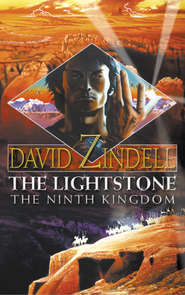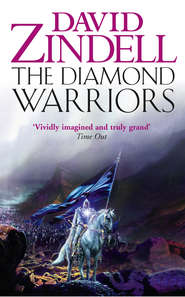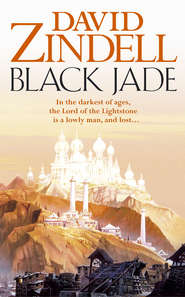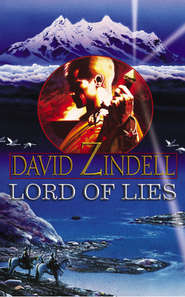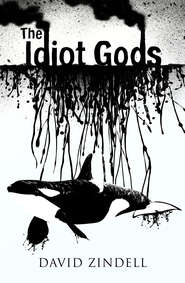По всем вопросам обращайтесь на: info@litportal.ru
(©) 2003-2024.
✖
Neverness
Настройки чтения
Размер шрифта
Высота строк
Поля
I swore the formal oath in a trembling voice as Bardo looked at me, plainly horrified. Soli called for our tumblers to be filled and announced, ‘To the quest for the Elder Eddas. Yes, my young fool of a pilot, we’ll all drink to that!’
I do not remember clearly what happened next. I think that there was much laughter and drinking of skotch and beer, as well as talk about the mystery, the joy and agony of life. I remember, dimly, Tomoth and Bardo weeping, locking wrists and trying to push each other’s arm to the gleaming surface of the bar. It is true, I now know, that liquor obliterates and devours the memory. Bardo and I found other bars that night serving skotch and beer (and powerful amorgenics); we also found the Street of the Master Courtesans and beautiful Jacarandans who served our lust and pleasure. At least I think they did. Because it was my first time with a skilled woman – women – I knew very little of lust and pleasure, and I was to remember even less. I was so drunk that I even allowed a whore named Aida to touch my naked flesh. My memories are of heavy perfume and dark, burning skin, the blindly urgent pressing of body against body; my memories are murky and vague, spoiled by the guilt and fear that I had made enemies with the Lord Pilot of our Order and had sworn an oath that would surely lead to my death. ‘Journeymen die,’ Soli said as we left the master pilot’s bar. As I stumbled out onto the gliddery I remember praying that he would be wrong.
2 (#ulink_5f62c2c2-aaf7-5d13-a256-7b0295b80009)
A Pilot’s Vows (#ulink_5f62c2c2-aaf7-5d13-a256-7b0295b80009)
Strange, though, alas! are the
Streets of the City of Pain …
Rainer Maria Rilke, Holocaust Century Scryer
We received our pilot’s rings late in the afternoon of the next day. At the centre of Resa, surrounded by the stone dormitories, apartments and other buildings of the college, the immense Hall of the Ancient Pilots overflowed with the men and women of our Order. From the great arched doorway to the dais where we journeymen knelt, the brightly coloured robes of the academicians and high professionals rippled like a sea of rainbow silk. Because the masters of the various professions tended to cleave to their peers, the rainbow sea was patchy: near the far pillars at the north end of the Hall stood orange-robed cetics, and next to them, a group of akashics covered from neck to ankle in yellow silk. There were cliques of scryers berobed in dazzling white, and green-robed mechanics standing close to each other, no doubt arguing as to the ultimate (and paradoxical) composition and nature of the spacetime continuum, or some other arcanum. Just below the dais was the black wavefront of the pilots and master pilots. I saw Lionel, Tomoth and his brothers, Stephen Caraghar and others that I knew. At the very front stood my mother and Justine, looking at us – I thought – proudly.
The Timekeeper, resplendent and stern in his flowing red robe, bade the thirty of us to repeat after him the vows of a pilot. It was good that we knelt close together. The warm, reassuring bulk of Bardo pressing me from the right, and my friend Quirin on my left, kept me from pitching forward to the polished marble surface of the dais. Although that morning I had been to a cutter who had melded the ragged tear of my eyelid and had taken a purgative to cleanse my body of poisonous skotch, I was ill. My head felt hot and heavy; it seemed that my brain was swollen with blood and would burst my skull from inside. My spirit, too, was burning. My life was ruined. I was sick with fear and dread. I thought of the Tycho and Erendira Ede and Ricardo Lavi, and other famous pilots who had died trying to pierce the mystery of the Solid State Entity.
Immersed as I was in my misery, I missed most of the Timekeeper’s warnings as to the deadliness of the manifold. One thing he said I remember clearly: that of the two hundred and eleven journeymen who had entered Resa with us, only we thirty remained. Journeymen Die, I said to myself, and suddenly the Timekeeper’s deep, rough voice vibrated through the haze of my wandering thoughts. ‘Pilots die too,’ he said, ‘but not as often or as easily, and they die to a greater purpose. It is to this purpose that we are gathered here today, to consecrate …’ He went on in a like manner for several minutes. Then he enjoined us to celibacy and poverty, the least in importance of our vows. (I should mention that the meaning of celibacy is taken in its narrowest sense. If it were not, Bardo could never have been a pilot. Although physical passion between man and woman is exalted, it is the rule of our Order that pilots not marry. It is a good rule, I think, a rule not without reason. When a pilot returns from the manifold years older or younger than his lover, as Soli recently had, the differential ageing – we call it crueltime – can destroy them.) ‘As you have learned and will learn, so must you teach,’ the Timekeeper said, and we took our third vow. Bardo must have heard my voice wavering because he reached over and squeezed my knee, as if to impart to me some of his great strength. The fourth vow, I thought, was the most important of all. ‘You must restrain yourselves,’ the Timekeeper told us. I knew it was true. The symbiosis between a pilot and his ship is as profound and powerful as it is deadly addictive. How many pilots, I wondered, had been lost to the manifold because they too often indulged in the power and joy of their extensional brains? Too many. I repeated the vow of obedience mechanically, with little spirit or enthusiasm. The Timekeeper paused, and I thought for a moment he was going to look at me, to chasten me or to make me repeat the fifth vow again. Then, with a voice pregnant with drama, in a ponderous cadence, he said, ‘The last vow is the holiest vow, the vow without which all your other vows would be as empty as a cup full of air.’ So it was that on the ninety-fifth day of false winter in the year 2929 since the founding of Neverness, we vowed above all else to seek wisdom and truth, even though our seeking should lead to our death and to the ruin of all that we loved and held dear.
The Timekeeper called for the rings. Leopold Soli emerged from an anteroom adjacent to the dais. A frightened-looking novice followed him carrying a velvet wand around which our thirty rings were stacked, one atop the other. We bowed our heads and extended our right hands. Soli proceeded down the line of journeymen, slipping the spun-diamond rings off the wand and sliding them onto each of our little fingers. ‘With this ring, you are a Pilot,’ he said to Alark Mandara and Chantal Astoreth. And to the brilliant Jonathan Ede and the Sonderval, ‘With this ring you are a pilot,’ on and on down the line of kneeling journeymen. His nose was so swollen that his words sounded nasal, as if he had a cold. He came to Bardo, whose fingers were bare of the jewellery he usually wore and instead encircled with rings of dead white flesh. He removed the largest ring from the wand. (Though my head was supposed to be bowed, I could not resist peeking as Soli pushed the gleaming black ring around Bardo’s mammoth finger.) Then it was my turn. Soli bent over to me, and he said, ‘With this ring you are a … pilot.’ He said the word ‘pilot’ as if it had been forced out of him, as if the word were acid to his tongue. He jammed the ring on my finger with such force that the diamond shaved a layer from my skin and bruised my knuckle tendon. Eight more times I heard ‘With this ring you are a pilot,’ and then the Timekeeper intoned the litany for the Lord Pilot, and said a requiem, and we were done.
We thirty pilots left the dais to show our new rings to our friends and masters. A few of the wealthier new pilots had family members who had paid the expensive passage to Neverness aboard a commercial deep ship, but Bardo was not one of these. (His father thought him a traitor for abandoning the family estates for the poverty of our Order.) We mingled with our fellows, and the sea of coloured silk engulfed us. There were shouts of happiness and laughter and boots stamping on the tiled floor. My mother’s friend, the eschatologist Kolenya Mor, indecently pressed her plump, wet cheek next to mine. She hugged me as she bawled, ‘Look at him, Moira.’
‘I’m looking at him,’ my mother said. She was a tall woman and strong (and beautiful), though I must admit she was slightly fat due to her love of chocolate candies. She wore the plain grey robe of a master cantor, those purest of pure mathematicians. Her quick grey eyes seemed to look everywhere at once as she tilted her head quizzically and asked me, ‘Your eyelid has been melded. Recently, hasn’t it?’ Ignoring my ring, she continued, ‘It’s well known what you said, the oath you swore. To Soli. It’s the talk of the city. “Moira’s son has sworn to penetrate the Solid State Entity,” that’s all I’ve heard today. My handsome, brilliant, reckless son.’ She began to cry. I was shocked, and I could not look at her. It was the first time I had ever seen her cry.
‘It’s a beautiful ring,’ my Aunt Justine said as she came up to me and bowed her head. She held up her own pilot’s ring for me to look at. ‘And well deserved, no matter what Soli says.’ Like my mother, Justine was tall with slightly greyed black hair pulled back in a chignon; like my mother she loved chocolates. But where my mother most often spent her days thinking and exploring the possibilities of her too-ambitious daydreams, Justine liked to socialize and skate figures and perform difficult jumps at the Ring of Fire, or the North Ring, or one of the city’s other crowded ice rings. Thus she had retained the streamlined suppleness of her first youth at the expense, I thought, of her naturally quick mind. I often wondered why she had wanted Soli for a husband, and more, why the Timekeeper had allowed these two famous pilots a special dispensation to marry.
Burgos Harsha, with his bushy eyebrows, jowls and long black hairs pushing out of his piglike nostrils, approached us and said, ‘Congratulations, Mallory. I always expected you to do something extraordinary – we all did, you know – but I never dreamed you’d break our Lord Pilot’s nose the first time you met him and swear to kill yourself in that nebula known colloquially – and, I might add, quite vulgarly – as the Solid State Entity.’ The master historian rubbed his hands together vigorously and turned to my mother. ‘Now, Moira, I’ve examined the canons and the oral history of the Tycho as well as the customaries, and it’s clear – I may be wrong, of course, but when have you known me to be wrong? – it’s clear that Mallory’s oath was a simple troth to the Lord Pilot, not a promissory oath to the Order. And certainly not a solemn oath. At the time he swore to kill himself – and this is a subtle point, but it’s clear – he hadn’t taken his vows, so he wasn’t legally a pilot, so he was not permitted to swear a promissory oath.’
‘I don’t understand,’ I said. From behind me came singing, the swish of silk against silk, and the chaotic hum of a thousand voices. ‘I swore what I swore. What difference does it make who I swore it to?’
‘The difference, Mallory, is that Soli can release you from your oath, if he wants to.’
I felt a squirt of adrenalin in my throat, and my heart fluttered in my chest like a nervous bird. I thought of all the ways pilots died: They died fenestering, their brains ruined by too-constant symbiosis with their ship, and they died of old age lost in decision trees; supernovae reduced their flesh to plasma, and dreamtime, too much dreamtime, left them forever staring vacantly at the burning stars; they were killed by aliens, and murdered by human beings, and minced by meteor swarms, and charred by the penumbras of blue giant stars, and frozen by the nothingness of deep space. I knew then that despite my foolish words about death among the stars being glorious, I did not want glory, and I desperately did not want to die.
Burgos left us, and my mother said to Justine, ‘You’ll talk to Soli, won’t you? I know he hates me. But why should he hate Mallory?’
I kicked the heel of my boot against the floor. Justine traced her index finger along her eyebrow and said, ‘Soli’s so difficult now. This last journey nearly killed him, inside, as well as out. Oh, I’ll talk to him, of course, I’ll talk on until my lips fall off as I always do, but I’m afraid he’ll just stare at me with his broody eyes and say things like “If life has meaning, how can we know if we’re meant to find it?” or, “A pilot dies best who dies young, before crueltime kills what he loves.” I can’t really talk to him when he’s like that, of course, and I think it’s possible that he thinks he’s being noble, letting Mallory swear to die heroically, or perhaps he really believes Mallory will succeed and just wants to be proud of him – I can’t tell what he thinks when he’s all full of himself, but I’ll talk to him, Moira, of course I will.’
I had little hope that Justine would be able to talk to him. Long ago, when the Timekeeper had let them marry, he had warned them, ‘Crueltime, you can’t conquer crueltime,’ and he had been right. It is commonly believed that it is differential ageing, the alder, that kills love, but I do not think this is entirely true. It is age and selfness that kill love. We grow more and more into our true selves every second that we are alive. If there is such a thing as fate it is this: the outer self seeking and awakening to the true self no matter the pain and terror – and there is always pain and terror – no matter how great the cost may be. Soli, true to his innermost desire, had returned from the core enthralled by his need to comprehend the meaning of death and the secret of life, while Justine had spent those same long years on Neverness living life and enjoying the things of life: fine foods and the smell of the sea at dusk (and, some said, her lovers’ caresses), as well as her endless quest to master her waltz jumps and perfect her figure eights.
‘I don’t want Justine to talk to him,’ I lied.
My mother tilted her head and touched my cheek with her hand as she had done when I was a boy sick with fever. ‘Don’t be foolish,’ she said.
A group of my fellow pilots, led by the immensely tall and thin Sonderval, diffused like a black cloud through the professionals around us and surrounded me. Li Tosh, Helena Charbo, and Richardess – I thought they were the finest pilots ever to come out of Resa. My old friend, Delora wi Towt, was pulling at her blonde braids as she greeted my mother. The Sonderval, who came from an exemplar family off Solsken, stretched himself straight to his eight feet of height, and said, ‘I wanted to tell you, Mallory. The whole college is proud of you. For facing the Lord Pilot – excuse me, Justine, I didn’t mean to insult – and we’re proud of what you swore to do. That took courage, we all know that. We wish you well on your journey.’
I smiled because the Sonderval and I had always been the fiercest of rivals at Resa. Along with Delora and Li Tosh (and Bardo when he wanted to be), he was the smartest of my fellow pilots. The Sonderval was a sly man, and I sensed more than a bit of reproach in his compliment. I did not think he believed I was courageous for swearing to do the impossible; more likely he knew that my anger had finally undone me. He seemed very pleased with himself, probably because he thought I would never return. But then, the exemplars of Solsken always need to be pleased with themselves, which is why they have bred themselves to such ridiculous heights.
The Sonderval and the others excused themselves and drifted off into the crowd. My mother said, ‘Mallory was always popular. With the other journeymen, if not his masters.’
I coughed as I stared at the white triangles of the floor. The singing seemed to grow louder. I recognized the melody of one of Takeko’s heroic (and romantic) madrigals. I was filled instantly with despair and false courage. Confused as I was, vacillating between bravado and a cowardly hope that Soli would dissolve my oath, I raised my voice and said, ‘Mother, I swore what I swore; it doesn’t matter what Justine says to Soli.’
‘Don’t be a fool,’ she said. ‘I won’t have you killing yourself.’
‘But you’d have me dishonour myself.’
‘Better dishonour – whatever that is – than death.’
‘No,’ I said, ‘better death than dishonour.’ But I did not believe my own words. In my heart, I was all too ready to accept dishonour rather than death.
My mother muttered something to herself – it was a habit of hers – something that sounded like, ‘Better that Soli should die. Then you’d suffer neither. Death nor dishonour.’
‘What did you say?’ I asked.
‘I didn’t say anything.’
She looked over my shoulder and frowned. I turned to see Soli, tall and sombre in his tight black robe, pushing his way through the sea of people. He was leading a beautiful, eyeless scryer by the arm. I was struck immediately by the contrast of white and black: The scryer’s black hair hung like a satin curtain over the back of her white robes, and her eyebrows were bushy and black against her white forehead. She moved slowly and too carefully, like a cold, marble statue brought to sudden – and unwelcome – life. I took little notice of her heavy breasts and dark, large nipples so obvious beneath the thin silk; it was her face that fixed my stare, the long aquiline nose and full red lips, and most of all, the dark, smoothly scarred hollows where her eyes used to be.
‘Katharine!’ Justine suddenly exclaimed as they came closer. ‘My darling daughter!’ She threw her arms around the scryer and said, ‘It’s been so long!’ They embraced for a while; then Justine wiped her moist eyes on the back of her gloves and said, ‘Mallory, may I present your cousin, Dama Katharine Ringess Soli.’
I greeted her and she turned her head in my direction. ‘Mallory,’ she said, ‘at last. It’s been so long.’
There have been moments in my life when time came to a stop, when I felt as if I were living some dimly remembered (though vital) event over again. Sometimes the sound of thallows screeching in winter or the smell of wet seaweed will take me instantly back to that clear night long ago when I stood alone on the desolate and windy beach of the Starnbergersee and gave myself over to the dream of mastering the stars; sometimes it is a colour, perhaps the sudden orange of a sliddery or a glissade’s vivid greenness, that transports me to another place and time; sometimes it is nothing at all, at least nothing more particular than a certain low slant of the sun’s rays in deep winter and the rushing of the icy sea wind. These moments are mysterious and wonderful, but they are also full of strange meaning and dread. The scryers, of course, teach the unity of nowness and thenness and times yet to be. For them, I think, future dreams and self-remembrance are two parts of a single mystery. They, those strange, holy, and self-blinded women and men of our Order, believe that if we are to have visions of our future, we must look into our past. So when Katharine smiled at me, and the calm, dulcet tones of her voice vibrated within me, I knew that I had come upon such a moment, when my past and future were as one.
Although I knew I had never seen her before, I felt as if I had known her all my life. I was instantly in love with her, not, of course, as one loves another human being, but as a wanderer might love a new ocean or a gorgeous snowy peak he has glimpsed for the first time. I was practically struck dumb by her calmness and her beauty, so I said the first stupid thing which came to mind. ‘Welcome to Neverness,’ I told her.
‘Yes, welcome,’ Soli said to his daughter. ‘Welcome to the City of Light.’ There was more than a little sarcasm and bitterness in his voice.
‘I remember the city very well, Father.’ And so she should have remembered since, like me, she was a child of the city. But when she was a girl, when Soli had gone off on his journey to the core, Justine had taken her to be raised by her grandmother on Lechoix. She had not seen her father (and I thought she would never see him again) for twenty-five years. All that time she had remained on Lechoix in the company of man-despising women. Although she had reason to be bitter, she was not. It was Soli who was bitter. He was angry at himself for having deserted his wife and daughter, and he was bitter that Justine had allowed and even encouraged Katharine to become a scryer. He hated scryers.
‘Thank you for making the journey,’ Soli said to her.
‘I heard that you had returned, Father.’
‘Yes, that’s true.’
There was an awkward silence as my strange family stood mute in the middle of a thousand babbling people. Soli was glowering at Justine, and she at him, while my mother stole furtive, ugly glances at Katharine. I could tell that she did not like her, probably because it was obvious that I did. Katharine smiled at me again, and said, ‘Congratulations, Mallory, on your … To go off exploring the Entity, that was a brave … we’re all very proud.’ I was a little irritated at her scryer’s habit of not completing her sentences, as if the person she was talking to could ‘see’ what was left unsaid and skip ahead to the crest of her rushing thoughts.
‘Yes, congratulations,’ Soli said. ‘But the pilot’s ring seems a little small for your finger. Let’s hope your pilot’s vows aren’t too great for your spirit.’
My mother cocked her head as she pointed at Soli’s chest and said, ‘What spirit remains? Within the Lord Pilot? A tired, bitter spirit. Don’t speak to my son of spirit.’
‘Shall we speak of life, then? Yes, we shall speak of life: Let’s hope Mallory lives long enough to enjoy the life of a new pilot. If there was a tumbler of skotch at hand we’d toast to the glorious but too short lives of foolish young pilots.’
‘The Lord Pilot,’ my mother said quickly, ‘is too proud of his own long life.’
Justine grasped Soli’s arm while she brought her full, pouting lips to his ear and began whispering. He broke away and said to me, ‘You were probably drunk when you swore your oath. And your Lord Pilot was certainly drunk. Therefore, my lovely wife informs me, we’ve only to announce that the whole thing was a joke, and we are both finished with this foolishness.’







